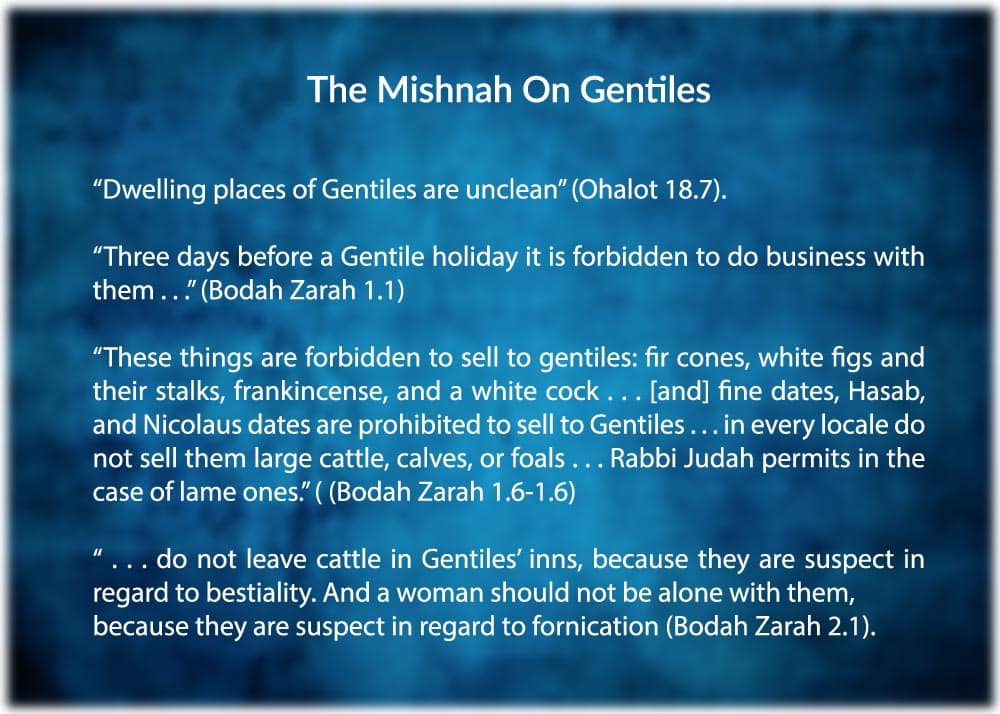Since Matthew 5:21, Jesus has boldly and directly challenged the teachings of the Jewish leaders of His day. How many of them were present? We do not know; but if any were present, we can be sure they were not very happy. Jesus corrected their teaching about heart-murder (v. 21), heart-adultery (v. 27), divorce and remarriage (v. 31), commitments and honesty (v. 33), and selfishness and vengeance (v. 38). He has said, “You have heard . . .” five times. He has addressed a significant number of key topics found in the Mishnah which is a Jewish commentary on the Pentateuch. It is also called the Oral Law. Jesus has one more “You have heard . . .” This is His sixth and final one. It is a summary. His statements so far have talked about the fruit produced from a bad heart. Now Jesus aims right at the heart.
You have heard that it was said, ‘YOU SHALL LOVE YOUR NEIGHBOR, and hate your enemy.’ But I say to you, love your enemies . . . Matthew 5:43-44 (NASB)
You Have Heard
Jesus closes this section of the Sermon on the Mount with Leviticus 19:18.
. . . but you shall love your neighbor as yourself; I am the LORD. Leviticus 19:18 (NASB)
Notice there is a difference between Leviticus’ and Jesus’ statements (Matthew 5:43). Jesus did not include “as yourself.” Did the Jews leave this off, or did Jesus just not include it? The other New Testament passages (Matthew 19:19; 22:39; Mark 12:31-33; Luke 10:27-29; Romans 13:9; Galatians 5:14 and James 2:8) all include it. What we do know from the Bible and the Mishnah is that these religious leaders considered their neighbors to be only other Jews.

Hate Your Enemy
The Mishnah does quote all of Leviticus 19:18 (Nedarin 9.4), but it is apparent from the rest of the Mishnah that Gentiles and Samaritans (John 4:9) were generally not loved. They did not treat the Gentiles as themselves. They were partial. The Mishnah is proof that they were taught to not help Gentiles enjoy their holidays. In a number of cases, they could only sell them inferior items; and there were items they would not sell to a gentile. They taught that God did not allow the Gentiles to divorce their wives – only Jews could. The Jews loved other Jews. Even converts to the Jewish faith were second class Jews. In short, they were actively taught not to love non-Jews.
Does this sound like some of us today? Christians who see problems with the food, drink and sexual lives of non-Christians, as a result largely ignore non-Christians. In some cases, Christians focus almost exclusively on their own church. Yes, they agree with Jesus just as the Jews agreed with Leviticus 19:18; and just as the Jews, they practice “us and no more.”
Neighbors And Enemies
The Greek word Jesus used for “neighbor” is PLESION which literally means “close by” or the “person near you.” The meaning is clear; anyone who is near you is your neighbor. Can you think of someone near you whom you do not love? God does mean that you have some kind of warm feeling in your heart for this person. God does not command us to generate a feeling. No! He calls us to show loving behavior. The feeling will follow. Listen to some examples from scripture,
Honor your father and your mother . . . You shall not murder, not commit adultery, not steal, not bear false witness against your neighbor, not covet your neighbor’s house, your neighbor’s wife or his male servant or his female servant or his ox or his donkey or anything that belongs to your neighbor. Exodus 20:12-17 (NASB)
Psalms 101:5 tells us that a godless man destroys his neighbor with secret slander. Proverbs says those who despise their neighbor lack sense (Proverbs 11:12), and a neighbor finds no favor in the eyes of the wicked (Proverbs 21:10). Proverbs summarizes a righteous man as a guide to his neighbor (Proverbs 12:26). Jesus calls us to be like the last example. Are you struggling with loving the family next door, or the woman/man at work? Jesus reaches out His hand beyond them and to your enemy. Love those who have gossiped about you. Love those who have competed with you at work. Love those at work or at school who have used you. Why?
Jesus’ Four Reasons
What is amazing is that Jesus focuses on loving our enemy and not our neighbor. He gives us four reasons to love our enemies – even those who are currently persecuting us.
The first reason He gives us is the sign or indicator of one who has become a Christian. Listen to 1 John,
By this the children of God and the children of the devil are obvious: anyone who does not practice righteousness is not of God, nor the one who does not love his brother. 1 John 3:10 (NASB)
Jesus’ second reason is that God the Father loves everyone, even our enemy,
He causes His sun to rise on the evil and the good, and sends rain on the righteous and the unrighteous. Matthew 5:45 (NASB)
Jesus’ listeners understood His next point better than we do because they hated the Roman tax-gatherers and the Gentiles. Jesus’ next point was that they were no better than either of them if they love only those who love them and give greetings to only their neighbors – fellow Jews.
Conclusion
Jesus wants us to love those we consider to be undeserving. He calls us to love others with a mature love, even if they do not love us back. This reminds us of the following little girl,
A four-year-old girl, hugging a doll in each of her little arms, looked wistfully up at her mother and said, “Mamma, I love them and love them and love them, but they never love me back.”
Romans 5:5 says the Holy Spirit can help us love others because the “love of God has been poured out within our hearts through the Holy Spirit” if we will confess our sins and ask the Holy Spirit to release God’s love in our hearts.
